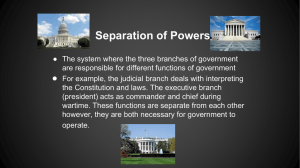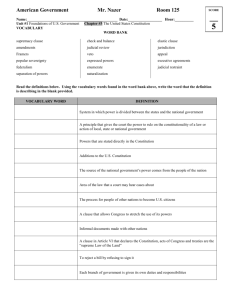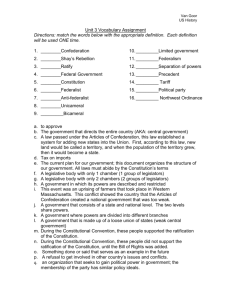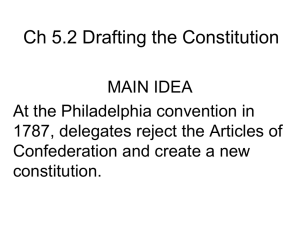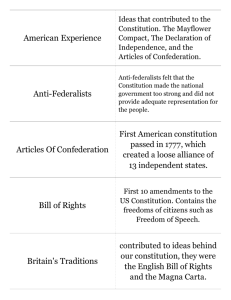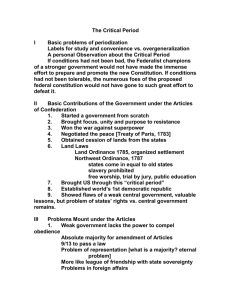IPbicameral III Great Compromise override
advertisement
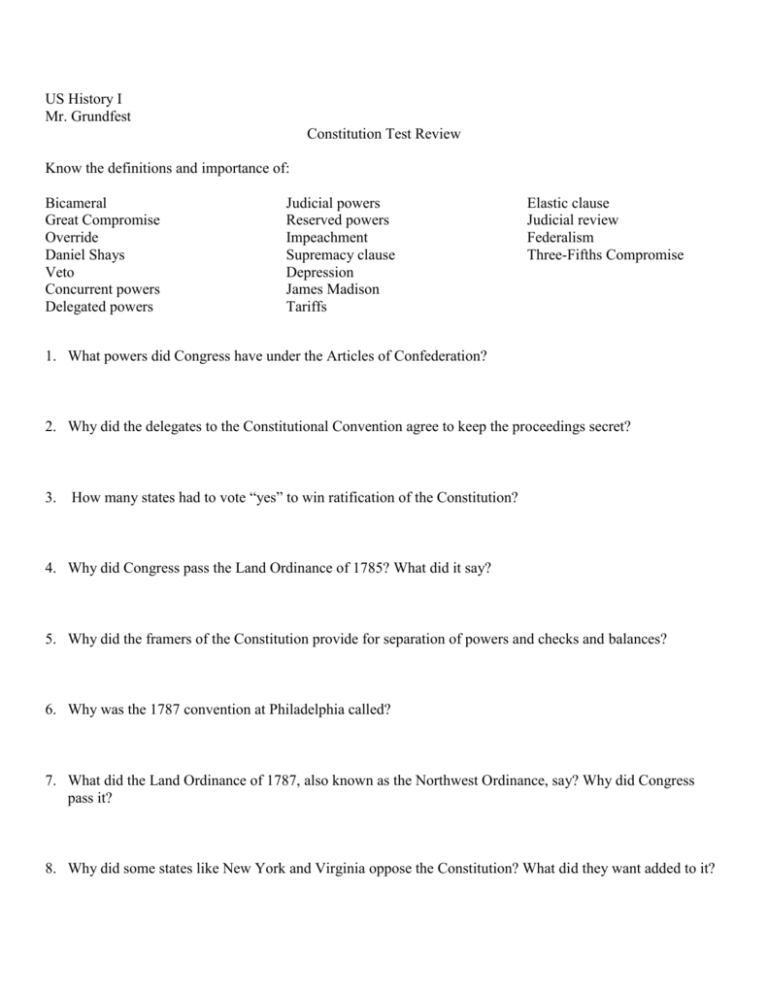
US History I Mr. Grundfest Constitution Test Review Know the definitions and importance of: Bicameral Great Compromise Override Daniel Shays Veto Concurrent powers Delegated powers Judicial powers Reserved powers Impeachment Supremacy clause Depression James Madison Tariffs Elastic clause Judicial review Federalism Three-Fifths Compromise 1. What powers did Congress have under the Articles of Confederation? 2. Why did the delegates to the Constitutional Convention agree to keep the proceedings secret? 3. How many states had to vote “yes” to win ratification of the Constitution? 4. Why did Congress pass the Land Ordinance of 1785? What did it say? 5. Why did the framers of the Constitution provide for separation of powers and checks and balances? 6. Why was the 1787 convention at Philadelphia called? 7. What did the Land Ordinance of 1787, also known as the Northwest Ordinance, say? Why did Congress pass it? 8. Why did some states like New York and Virginia oppose the Constitution? What did they want added to it? 9. What were some of the challenges that the government under the Articles of Confederation faced regarding foreign affairs? 10. Which type of power was kept by the states? 11. What does the Constitution say about conflicts between state and federal laws? 12. Why did the Antifederalists oppose a strong national government? 13. How can the Constitution be changed? What gets in the way of proposed changes? 14. How does the Constitution adapt to changing conditions?


